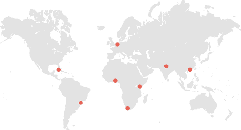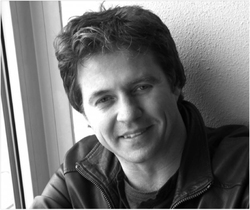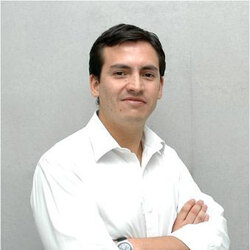Research Project
Shenzhen wants to become a creative city. Policies to reach that goal are mainly aimed at providing attractive work locations, city marketing and organizing events. But how about attractive living environments for people working in the creative industries? Creative workers have been interviewed about where they live, where they would like to live, and what the city of Shenzhen could do to improve their housing situation. The project is a collaboration with Urbanus and links to their on-going work on Chinese creative cities.
Contact Marco Bontje for more information on his project at: M.A.Bontje@uva.nl
Biography
Marco Bontje is assistant professor of urban geography at the Department of Geography, Planning and International Development Studies, University of Amsterdam, Netherlands. He is also the programme director of the Research Master Urban Studies at the same university. His main specialisation field is urban geography, but in both research and teaching he combines this with issues of economic geography and urban and regional planning. He has done research on the attractiveness of European city-regions for people and companies in the creative and knowledge-intensive industries, amongst others in the EU 6th Framework project ’Accommodating Creative Knowledge’ (ACRE) and the ’Inventive City-Regions’ project. Other research topics include or have included shrinking cities in Europe (see amongst others the recently published special issue ’Understanding shrinkage in European regions’ of the journal Built Environment), sustainable development of city-edge and suburban work locations (Marie Curie Host Fellowship in Leipzig, Germany, 2002-2004), and the the extent to which Dutch national spatial planning policy managed to reach its targets (PhD thesis, 2001). Marco was on a sabbatical leave (September-December 2012) hosted by the City University Hong Kong.
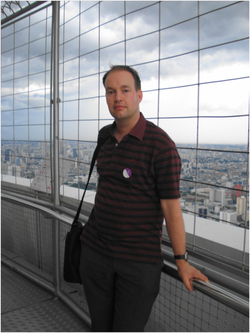
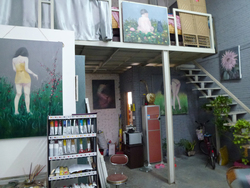
Live-Work Space of one of the respondents in the creative park F518 Idea Land.
Research Project
SHENZHEN II: SPECIAL GREEN ECONOMIC ZONE
Through foreign investment, Shenzhen, once a small village, has rapidly transformed into one of the world’s fastest growing cities. Through the policy of ‘reform and opening’ and the establishment of Special Economic Zones (SEZ) in 1979, Shenzhen SEZ has become a powerful recipient of foreign owned and joint ventures, particularly in the manufacturing industries. In recent years, many of Shenzhen’s manufacturing industries have shifted to inland less-costly cities. The increasingly vacant parts of Shenzhen’s require new economic transformations. Related to this, Shenzhen’s residents also need an improved quality of urban life.
Ronald Wall will discuss how Shenzhen can transform into a more resilient “green” economy. This requires that Shenzhen starts to develop urban conditions and urban policies which attract foreign and local investments in sustainable industries like renewable energy, biotech, creative sectors, and services. Based on a database of investments between cities worldwide, it will be shown which sustainable industries are potentials for Shenzhen, which competitor cities are already strong in these industries, and which urban factors underlie these strengths.
Ronald Wall conducted his research in 2013. You can contact Ronald Wall for more information on his project.
Ronald Wall (PhD. Economic Geography, Erasmus University Rotterdam; M. Arch. Academy of Architecture and Urban Planning Rotterdam, 1998) is specialized in urban economic development, city network analysis, urban planning and urban design.
During the period of 1991 to 2001 Ronald Wall worked for urban planning offices like OMA (Rem Koolhaas), MVRDV (Winy Maas), West 8 (Adriaan Geuze) and the Ministry of Housing, Spatial Planning and the Environment (VROM); working on planning in China, Ghana, South Africa, South Korea and various European countries. In this period he received a commendation from Nelson Mandela for the project Housing Generator, concerning South African township development and also received several design awards e.g. a Rotterdam Design Prize and International Design Award in 1996. Between 2001 and 2009 Ronald has been professor in urban planning at the Berlage Institute and taught at the Rotterdam and Amsterdam Academies of Architecture and Urban Planning. In 2006 and 2007 he carried out a four year contract research for The Netherlands Environmental Assessment Agency (RIVM/MNP), concerning urban development and global city networks. In 2008 he worked for the Berlage Institute / South Korean government on the development of a new town in South Korea (Saemangeum).
Ronald completed his doctorate in Economic Geography at the Department of Applied Economics, Erasmus University Rotterdam in 2009. In 2010 he completed contract research for Volume/AMO and the Abu Dhabi Urban Planning Council, concerning Middle Eastern cities and their economic networks with other cities around the world. In 2010 he completed a study for the Dutch Ministry of Economic Affairs and the Province of Southern Holland on the role of Dutch cities within global corporate networks. Currently Ronald is finalizing a detailed study into the position of South-Holland within international investment networks for the Province of South Holland. He has published in academic journals e.g. Economic Geography, Journal of Economic and Social Geography, Environment and Planning A, Volume of University of Columbia/AMO/Archis, and 306090 of Princeton University. Currently he is part of the senior academic staff of the Institute for Housing and Urban Development Studies (IHS). Ronald’s key interest is in global economic networks and their impact on the development of cities, and how this knowledge can be applied to the development of sustainable urban planning. His core skills are network analysis methods, statistical techniques, GIS mapping, and design methods and techniques.



